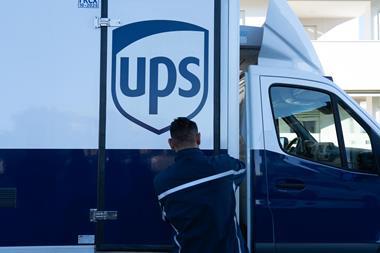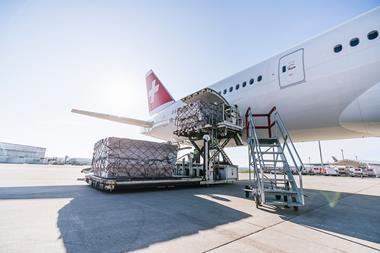UPS is facing the threat of strike action by its US workers after marathon talks with union representatives collapsed.
The express giant and the Teamsters union yesterday accused each other of walking away from talks over a new contract for 340,000 full- and part-time workers.
Workers represented by the union have already authorised strike action.
The Union said that UPS walked away from the bargaining table after "presenting an unacceptable offer to the Teamsters that did not address members’ needs".
“This multibillion-dollar corporation has plenty to give American workers — they just don’t want to,” said Teamsters general president Sean O’Brien. “UPS had a choice to make, and they have clearly chosen to go down the wrong road.”
At this stage, no additional negotiations are scheduled and the current contract is due to expire on July 31.
"The Teamsters have repeatedly made clear that UPS members will not work beyond the expiration of the current contract," the union said.
UPS said it had tabled historic proposals that "build on our industry-leading pay".
"We have not walked away, and the union has a responsibility to remain at the table," UPS said in a press release.
"Refusing to negotiate, especially when the finish line is in sight, creates significant unease among employees and customers and threatens to disrupt the US economy. Only our non-union competitors benefit from the Teamsters’ actions."
UPS' US workers last held strikes in 1997 when they walked off the job for 15 days, costing the company an estimated $850m and sending customers to rivals.
Consultancy Transport Intelligence practice leader Thomas Cullen said it was difficult to assess the impact of any strike action.
"There has not been a serious strike at UPS by the Teamsters since the 1990s however relations between the two sides have not always been good," said Cullen.
"It is being suggested in the US press that any strike would be the largest 'single employer strike' in American history, however assessing the impact of a strike by UPS workers would be complex as the parcel company has significant competition in the US and its role in the logistics economy is distinctly different to other parts of the transportation system such as ports or railways whose workers have threatened strike action recently.
"None-the-less the impact on the US economy of UPS being ‘non-operational’ for any length of time would be considerable."
https://www.aircargonews.net/sectors/pharma-logistics/ups-strengthens-healthcare-offering-in-singapore/
https://www.aircargonews.net/airlines/freighter-operator/ups-sees-intra-asia-trade-growth-as-immense-opportunity/















